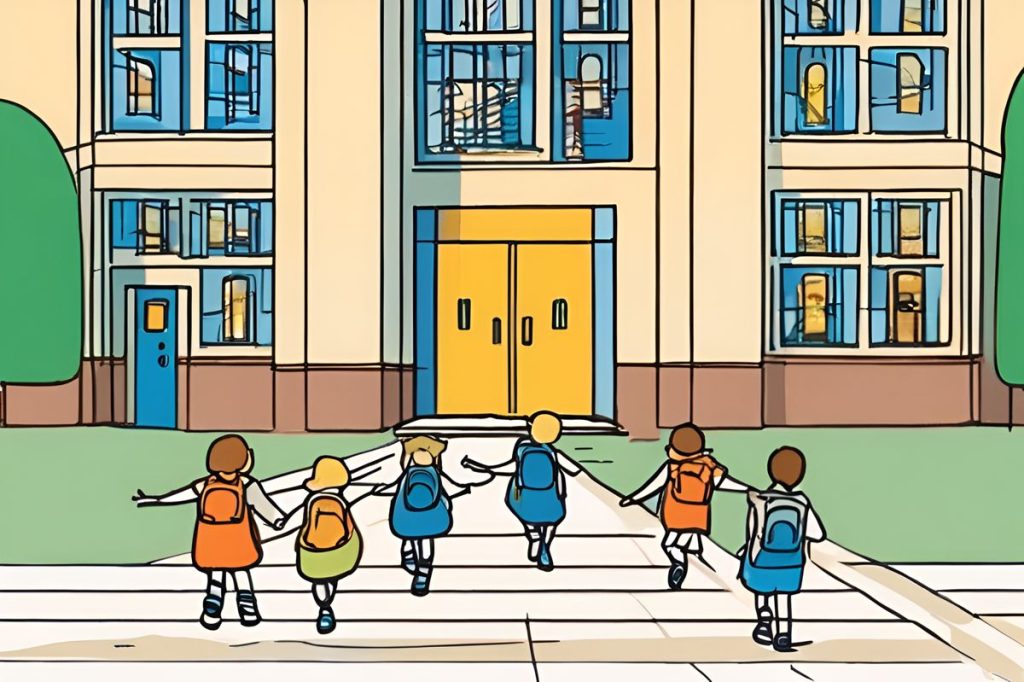Expanding free pre-primary education in Cyprus will ensure all children aged four and older have equitable access to quality early learning, benefiting cognitive, social, and emotional development. This reform aims to create a more inclusive society by helping low-income families afford education and laying a strong foundation for lifelong learning.
What are the benefits of expanding free pre-primary education in Cyprus?
Expanding free pre-primary education in Cyprus is aimed at providing equitable access to early learning for all children aged four and older. This reform will help low-income families afford quality education, foster cognitive, social, and emotional development in children, and lay a strong foundation for lifelong learning, ensuring a more equitable society.
A Step Towards Universal Pre-Primary Education
Cyprus is on the brink of a significant educational reform as the parliament gears up to vote on expanding free and compulsory pre-primary education. This landmark move aims to include children aged four years and older, broadening the scope of the current system. The vote, anticipated next week, follows a directive from Education Minister Athena Michaelidou, who has expressed the urgency of this matter to the House Education committee.
During a recent committee meeting, the chairman, Pavlos Mylonas, highlighted the minister’s instructions to advance this initiative. The various ministries and deputy ministries involved have pledged to collaborate closely to address and resolve any challenges within the education sector that may arise from the implementation of this new policy.
Addressing Educational Inequities
The potential impact of this legislation on Cypriot society is vast. Chrysanthos Savvides, a member of parliament, underscored the benefits it would bring to numerous low-income families, enabling them to select schools for their children without financial burdens. Meanwhile, Giorgos Karoullas, another MP, acknowledged the necessity of the reform but also emphasized the need for the ministry to provide solid assurances. He voiced concerns about the viability of nursery schools and the importance of detailed solutions over generalized approaches.
Amidst these discussions, the importance of comprehensive and genuine consultations by the Education Ministry was stressed. With an upcoming meeting scheduled between the ministry, the Social welfare deputy ministry, and the private preschools association, lawmakers like Karoullas are keen to see a clear plan before moving forward with the bill.
A Gradual Transition to Inclusivity
Despite some reservations, the bill has received favorable responses from other corners of the political spectrum. Christos Christofides, an MP, expressed optimism, suggesting that any potential issues could be resolved during the transition period. He pointed to a balanced approach that could cater to the needs of all segments of Cypriot society.
The government’s current proposal envisions a phased approach to lowering the age of nursery school acceptance. Beginning in the upcoming academic year, the plan is to welcome children who are at least four years and six months old. This gradual reduction in the minimum age will allow nursery schools the necessary time to adjust and expand their infrastructure and services.
Ensuring a Brighter Future
The proposed policy is not merely about expanding access; it’s about laying a strong foundation for lifelong learning. Studies have consistently shown that early childhood education plays a critical role in cognitive, social, and emotional development. By investing in the formative years of a child’s life, Cyprus is taking a proactive stance toward enhancing educational outcomes and, ultimately, fostering a more equitable society.
The transition to this new system will require careful planning and resources. It underscores the country’s commitment to bolstering its educational framework and ensuring that every child has the opportunity to thrive in a supportive learning environment. As the bill awaits parliamentary approval, the nation looks forward to a future where education is not just a privilege but a right that commences from the early stages of childhood.
How will the expansion of free pre-primary education benefit children in Cyprus?
Expanding free pre-primary education in Cyprus will provide equitable access to quality early learning for all children aged four and older. This reform will benefit children by fostering cognitive, social, and emotional development, laying a strong foundation for lifelong learning, and creating a more inclusive society.
What steps are being taken in Cyprus to implement the expansion of free pre-primary education?
The Education Minister Athena Michaelidou has issued a directive to the House Education committee to vote on expanding free and compulsory pre-primary education to include children aged four years and older. Various ministries and deputy ministries are collaborating closely to address potential challenges within the education sector.
What concerns have been raised about the expansion of free pre-primary education in Cyprus?
Some lawmakers have raised concerns about the viability of nursery schools and the need for detailed solutions over generalized approaches. There is also an emphasis on the importance of comprehensive consultations by the Education Ministry with stakeholders, including the Social welfare deputy ministry and the private preschools association.
How will the transition to a more inclusive pre-primary education system take place in Cyprus?
The government’s proposal includes a phased approach to lowering the age of nursery school acceptance, starting with children who are at least four years and six months old in the upcoming academic year. This gradual reduction in the minimum age aims to allow nursery schools time to adjust and expand their infrastructure and services to accommodate the changes.

